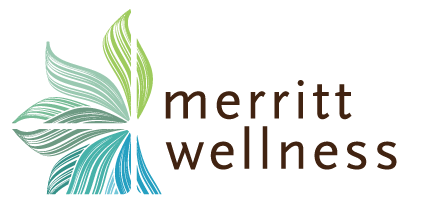As people age, they begin to take their health a bit more seriously. You probably noticed this phenomenon yourself — an article goes by, touting nutrient X as the answer to most ills (think Vitamin C, or Vitamin D, or selenium, for example) so you pick up a bottle of that. Or some marketing company tells you that cinnamon will reverse your diabetes, or turmeric will prevent your cancer or deal with your inflammation, and garlic (but only the special, aged garlic only from this company) will fix your cardiovascular problems. So you pick some of that up too, and before you know it, your cabinet is full, and you’re not sure you’re feeling quite as much better as you would like.
There is no question about it — people who take supplements do better than people who don’t. In our 30 years of treating patients, we have seen first hand how, along with a decent diet and some exercise, supplements can fill in the gaps. Those people have less illnesses, and are on less medications. The research says that too. But as you know, the internet can promote some serious confusion, and this is where people end up with a closet full of half-full supplement bottles.
There is a difference between nutrition and herbs — I call using both a “hand-in-glove” approach. Nutrition manages a lot of biochemical reactions, and deficiencies (even small ones) can cause a host of problems in the long run (see our article Adding up ). Herbs, however, often have different functions — turning on mechanisms that are not nutrient-based. Foods will do this too. For example, an orange has ascorbic acid in it, just like the nutrient, but it also has a host of other components, like bioflavonoids, carotenoids, chlorophyll, flavonoids, isothiocyanates, lignans, phytosterols, polyphenols, and more. You don’t get all that in a powdered ascorbic acid supplement. That’s why people have cooked with herbs and used herbs medicinally for thousands of years — they offer a level of protection that just nutrition does not.
Of course, quality counts. That is why we get our herbs primarily from Australia — supplements and herbs have to follow pharmaceutical standards in Australia, unlike in the United States. WIthout this oversight and insistence on quality, a label can say anything and it may look good, but impart no benefit. Your label says it used the whole, powdered plant? Big deal, if the active form is the root — wasting the space on the other parts won’t help. Your label doesn’t use the Latin name? Convenient if you’re trying to use another species of the herb. Your label doesn’t mention a specific amount of the active component of the herb? Sometimes it doesn’t exist, but often that’s left out because it shows the quality — low or no number, poor quality. And you can only hope that the amount in the capsule or tablet you’re taking is actually the amount that makes a difference — one label I saw listed 25 mg of Korean Ginseng, while what we use listed the Latin name (Panax ginseng), how much of that root (500 mg), how much of the active ingredient, the ginsenosides (8.4 mg), with the total amount of the extract being 100 mg. You probably don’t know this, but research shows you need 200 mg for a health effect, so that would be 2 tablets a day. But that other brand? You’d have no idea what part of the plant, how much of the active ingredient, etc, and 25 mg? That’s like ginseng dust. And ginseng is one of the most expensive herbs in the world, and therefore the most adulterated. Which should leave you with a healthy suspicion of most over-the-counter herbs, especially the cheap ones.
Because it counts, doesn’t it? Let’s say your goal is to protect yourself against cancer (1 in 3 people will get cancer in their lifetime, about 3 times the rate of 100 years ago). You need the best stuff possible to do that. You don’t want to find out years later that the low cost, low-quality stuff you got from a big-box store didn’t do its job!
What Doesn’t Kill You Makes You Stronger
If you want to slow down the aging process, there are a few known mechanisms that are helpful. Mostly they involved “stressing” the body.
Heat shock proteins are produced when cells are exposed to high temps, toxins, inflammation or stress. They bind to other cells and shield them from damage.
Sirtuins sense cellular stress and activate multiple genes that code for protective proteins such as antioxidants and cell-membrane stabilizers . SIRTs are increased with caloric restriction.
Calorie Restriction up-regulates genes that decline with aging: antioxidant enzymes, neurotropic factors and DNA repair enzymes, and down-regulates genes with increased expression with aging, like insulin signaling and inflammation.
Nrf2 Activation: This is your body’s own anti-oxidant system, which turns on when necessary, and backs off when it’s not needed. Nrf2 activates genes that produce antioxidant, detoxifying, and cytoprotective enzymes and proteins. Unlike taking Vitamin C as an antioxidant (which, in large amounts over time, has been shown to cause harm), Nrf2 activation happens when it’s needed.
The problem is, you have to stress your body to get these positive effects, and caloric restriction makes people cranky, having fevers makes them irritable and uncomfortable, exercise is hard, etc. Wouldn’t it be convenient if you get these things in a pill?
Get more tips, tricks and supplement recommendations directly in your inbox
Powerhouse Herbs
Now, the information I’m giving you here isn’t helpful if you’re one of those people who takes supplements for a few weeks, and then quits because you don’t see a result. Increasing your body’s protection needs consistent support, so don’t do this if you’re not interested in the long game. That being said, some people notice within a couple of weeks, an increase in clarity around their cognition, and better energy, all of which points to the body being supported. So what should we take to increase our sirtuins, heat-shock proteins and Nrf2?
Resveratrol: just like eating a whole food is better than taking an isolated supplement, taking the whole herb is better than taking simply resveratrol, and Japanese knotwood is the most concentrated form you can find. A bottle of red wine will have 2-3 mg of resveratrol, but research shows that 30-90mg is the most effective (that’s a lot of wine!). Resveratrol is a caloric-restrictor mimicker, an Nrf2 activator, anti-oxidant and it stabilizes DNA.
Milk Thistle: not just liver protection, milk thistle also activates sirtuins for cell protection, and increases insulin sensitivity. Also known to have anti-cancer effects.
Korean Ginseng has such a full-body effect, they struggle to even classify this herb. Used traditionally in Asia for its anti-aging benefits, it has multiple protective effects, which increase with rising duration and frequency of ginseng intake. It increases DHEA (the precursor to your hormones), increases cognitive function (especially in synergy with ginkgo), and is protective against cancer in long-term studies. It is anti-inflammatory, anti-oxidant, increases Nrf2, improves diabetes markers, and was used in Traditional Chinese Medicine for weakness and fatigue. But also often adulterated in non-regulated, unstandardized forms.
Ginkgo Biloba supports the brain and significantly improves health outcomes in old age. Beneficial for cardiovascular health, lowers oxidized LDL, increases Superoxide dismutase (an antioxidant effect from Nrf2). Especially helpful for cognition when combined with Korean Ginseng.
Grape Seed Extract: Many, many trials on grape seed extract show its antioxidant effects, and its impact on microcirculation and healthy platelet function, blood pressure, cognition, endurance and joint support. Microcirculation support helps at the capillary level, protecting the 1-cell thick capillaries and the inside of the arteries, making sure the benefits of circulation reach all parts of the body, like brain and joints.
Herbavital from Mediherb focuses on cognition, circulatory, immune and joint function, provides hormetic challenge, supports detoxification pathways, helps maintain normal insulin sensitivity, protects adrenals, activates sirtuin-mediated pathways, and mimics caloric restriction. With the pharmaceutical grade herbs, in 2 tablets a day. Do yourself a favor — don’t waste your money on low-quality herbs that do next-to-nothing. Get the most benefit and bang for your buck — use a standardized formula like Herbavital that delivers results. I’ve personally taken this formula for 15 years!
If you have any questions or want to learn more about how other whole food supplements can impact your health, schedule a patient screening now.


